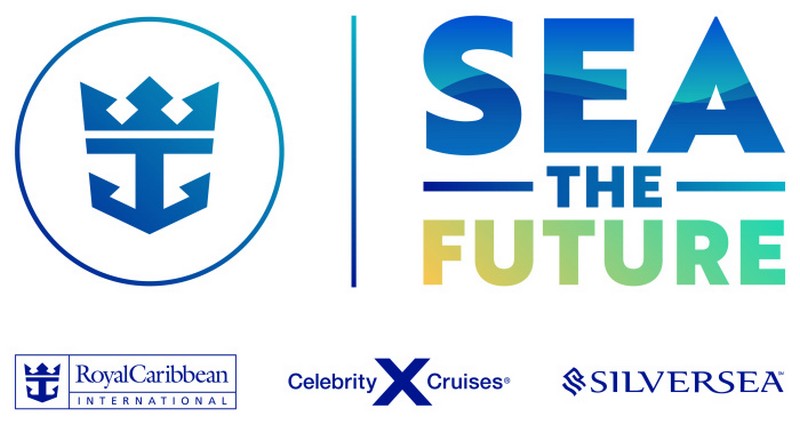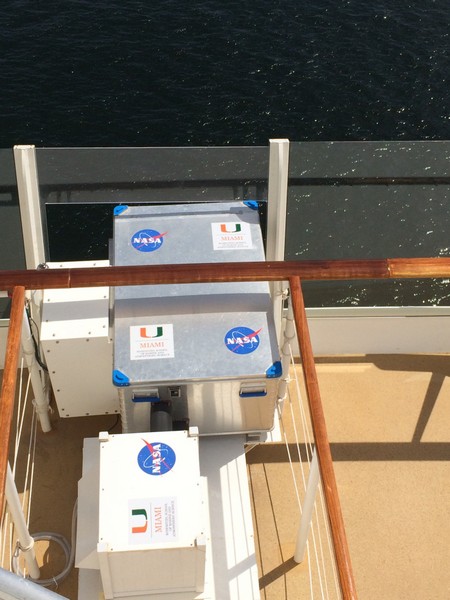Royal Caribbean Group estende la collaborazione per acquisire dati critici sulla conservazione degli oceani a bordo delle navi
Il rinnovo del programma OceanScope, annunciato in occasione della Giornata mondiale degli oceani, si basa su una collaborazione pubblico-privata decennale con l’Università di Miami, la NASA e il NOAA per affrontare i problemi di salute degli oceani.
Royal Caribbean Group sta rafforzando un impegno decennale per la conservazione degli oceani e gli sforzi di ricerca ambientale, Royal Caribbean Group ha annunciato oggi un’estensione di quattro anni del suo investimento in OceanScope, un data center open-source programma che fornisce agli scienziati informazioni critiche per studiare il clima e la conservazione degli oceani. In collaborazione con i principali partner del programma, tra cui la Rosenstiel School of Marine, Atmospheric and Earth Science dell’Università di Miami, la NASA e la National Oceanic and Atmospheric Administration (NOAA), il rinnovo del programma in occasione della Giornata mondiale degli oceani si basa su oltre 20 anni di rivoluzionari ricerca sulla vita marina dalle navi del Royal Caribbean Group.
ROYAL CARIBBEAN GROUP EXTENDS COLLABORATION TO CAPTURE CRITICAL OCEAN CONSERVATION DATA ONBOARD SHIPS
OceanScope program renewal – announced on World Oceans Day – builds on decades-long public-private collaboration with the University of Miami, NASA, and NOAA to address ocean health issues.
MIAMI – June 8, 2023 – Strengthening a decades-long commitment to ocean conservation and environmental research efforts, Royal Caribbean Group (NYSE: RCL) today announced a four-year extension of its investment in OceanScope, an open-source data program that provides scientists with critical information to study climate and ocean conservation. Collaborating with key program partners including the University of Miami Rosenstiel School of Marine, Atmospheric, and Earth Science, NASA, and the National Oceanic and Atmospheric Administration (NOAA), the program’s renewal on World Oceans Day builds on over 20 years of groundbreaking ocean and marine life research from Royal Caribbean Group ships.
OceanScope leverages a unique, comprehensive suite of oceanographic and meteorological instruments, located onboard Royal Caribbean Group ships, that generates continuous, simultaneous collection of the ocean’s vital signs such as the structure of currents, sea surface temperature, carbon dioxide concentrations, and salinity taken along the repetitive ship routes – which allows scientists to monitor changes on scales of seasons, years, and even decades.
“At Royal Caribbean Group, every day is World Oceans Day – and we are thrilled to renew a program as impactful to oceanic research as OceanScope,” said Jason Liberty, president and CEO, Royal Caribbean Group. “We’re dedicated to sustaining our planet and delivering the best vacations, responsibly – and our decades-long support of this unique initiative is testament to that. We can’t wait to see how OceanScope, and our scientific collaborators progress our understanding of ocean health and conservation.”
OceanScope’s open-source database is available to the international scientific research community worldwide. The resulting data products and peer-reviewed research are key to informing ocean and conservation policy.
Launched in 2002, the program helped verify for the first time that ocean acidification – a reduction in pH over an extended period of time caused primarily by uptake of carbon dioxide from the atmosphere was occurring in the Caribbean Sea but at varying rates. Ocean acidification is detrimental to calcifying organisms such as oysters, clams, sea urchins, shallow water corals, deep sea corals, and calcareous plankton, and an ongoing concern for the entire food web.
Extending OceanScope on Royal Caribbean Group ships helps ensure ongoing monitoring and changes of key ocean and atmospheric processes in critical ecosystems.
“We are most grateful to renew our successful collaboration with Royal Caribbean Group,” said Dr. Peter Ortner, research professor of marine biology and ecology at the University of Miami Rosenstiel School of Marine, Atmospheric and Earth Science. “This is an extraordinary example of how private industry, academic research institutions, and government agencies are collaborating to amass an incredibly valuable dataset highlighting the intricate connection between the ocean, atmosphere, and climate.”
As of 2023, data has been collected from over 100,000 nautical miles sailed from four ships, traveling across the Caribbean Sea, Galapagos, North Atlantic and Mediterranean Sea. Royal Caribbean International’s Allure of the Seas and Adventure of the Seas and Celebrity Cruises’ Celebrity Flora and Celebrity Equinox are currently providing data to scientists at NOAA, the University of Miami Rosenstiel School, and the community at large. Royal Caribbean Group intends to share the program’s learning to its more than eight million guests annually in an effort to increase ocean literacy.
“NASA is excited to revive its long-standing partnership with OceanScope, which is a valuable player in the Agency-led efforts to understand Earth climate today, and inform humanity for what waits tomorrow. Looking at Earth’s ocean’s from space and leveraging in situ observations enabled by projects like OceanScope is what allows us to build robust knowledge of ocean’s role in climate, which controls our planet’s heat, energy, and water,” said Dr. Nadya Vinogradova Shiffer, lead of NASA’s Climate Variability and Change Focus Area and program director of the NASA Ocean Physics program at NASA HQ, Washington, D.C.
“Sustained and systematic operations with automated instruments on a variety of platforms, including this innovative collaboration, is a key to maintaining and strengthening the World Meteorological Organization’s and Intergovernmental Oceanographic Commission’s Global Ocean Observing System to which NOAA is a major contributor,” said Rik Wanninkhof, a NOAA senior scientist and ocean carbon expert at the Atlantic Oceanographic and Meteorological Laboratory. “In particular, the CO2, surface temperature and salinity data from Royal Caribbean Group’s ships are major contributors to these ocean observing networks to determine the ocean’s carbon sink strength and ocean acidification.”
Royal Caribbean Group’s conservation work extends beyond OceanScope, with the company championing a broader commitment to sustaining the planet as part of its SEA the Future platform. Royal Caribbean Group is actively working to decarbonize its business through innovation, collaborative partnerships and a transition to cleaner fuels, smarter technologies, and improved energy efficiencies. Ultimately, the company’s efforts are driving toward – Destination Net Zero – a commitment to reach net-zero by 2050 and to deliver a net-zero emissions cruise ship by 2035.
To learn more about Royal Caribbean Group’s efforts to sustain our planet, energize communities and accelerate innovation, please visit http://www.royalcaribbeangroup.com/SEAtheFuture.
About Royal Caribbean Group:
Royal Caribbean Group (NYSE: RCL) is one of the leading cruise companies in the world with a global fleet of 64 ships traveling to approximately 1,000 destinations around the world. Royal Caribbean Group is the owner and operator of three award winning cruise brands: Royal Caribbean International, Celebrity Cruises, and Silversea Cruises and it is also a 50% owner of a joint venture that operates TUI Cruises and Hapag-Lloyd Cruises. Together, the brands have an additional 10 ships on order as of March, 31, 2023. Learn more at www.royalcaribbeangroup.com or www.rclinvestor.com.


